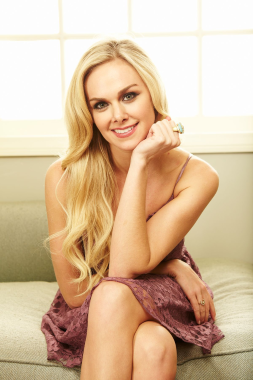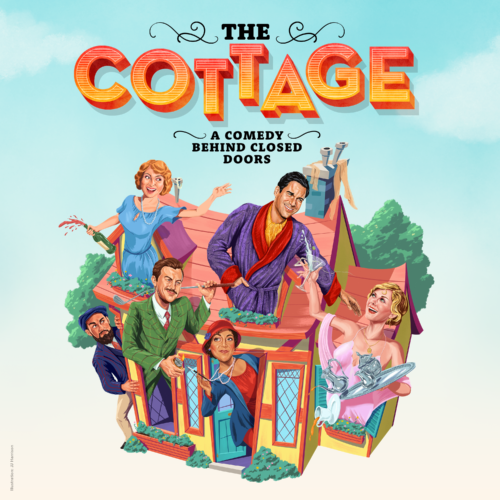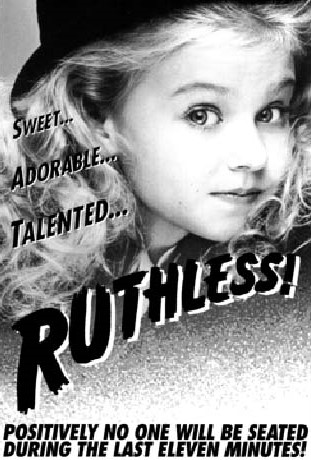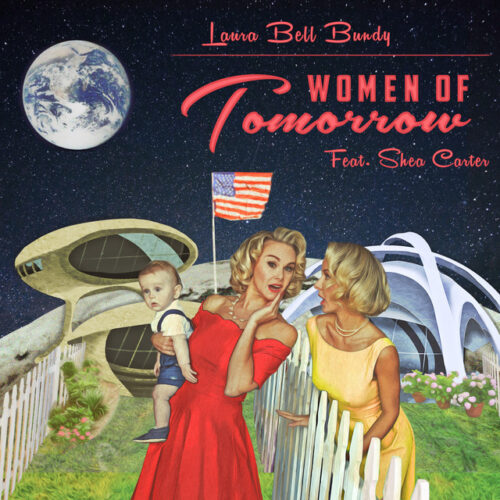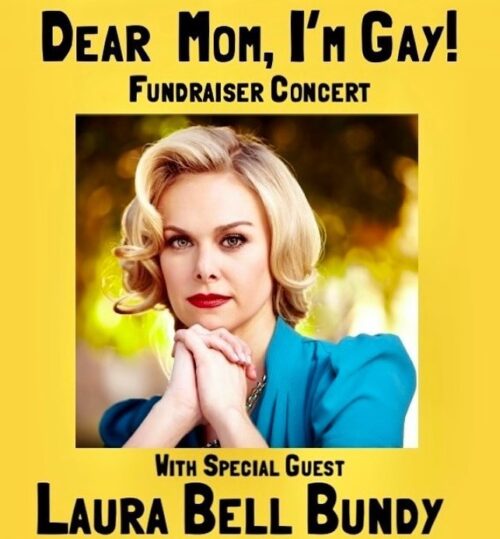A COTTAGE BUILT FOR LAURA BELL BUNDY
Currently running on Broadway for a limited run is the very funny bedroom farce, The Cottage by Sandy Rustin, directed by Jason Alexander, and with the stellar cast of Laura Bell Bundy, Eric McCormack, Lili Cooper, Nehal Joshi, Alex Moffat, and Dana Steingold. A send-up of the old-fashioned comedies by Noël Coward and Oscar Wilde mixed with the old-fashioned British sex romps of Run For Your Wife and No Sex Please We’re British, the play is a fast paced tale of sex, betrayal, and love that unfolds after the character Sylvia exposes an extramarital affair to both her husband and her lover’s wife.
Laura Bell Bundy plays Sylvia and gets the first laughs of the play as well as the last. No stranger to comedy, she has starred in the Broadway productions of Legally Blonde and Hairspray, as well as Glinda the Good Witch in Wicked. But her resume of accomplishments far outweighs the standing ovations from her performances onstage.
Recently, on a drive into the city for an evening performance of The Cottage, Stage and Cinema’s Gregory Fletcher got a chance to speak with her about her past work and all that makes her so admired.
GREGORY FLETCHER: You be careful and keep your eyes on the road.
LAURA BELL BUNDY: My publicist, Sam, laughs at me, “You keep office hours in the car.” I do. I get so much done on the drive in.
GF: Does The Cottage mark your first play in New York?
LBB: This is my first Broadway play, yes, and I just love it; I’m having so much fun. I’ve been wanting to do a straight play for so long. I’d been curious what it would feel like to do one. I just told my husband, “I think I’d be a very happy woman if I did a limited run of a play every year of my life.”
Laura Bell Bundy in The Cottage (Joan Marcus 2023)
GF: Your musical theater fans will very much object. How did this play come about for you? Had you worked before with anyone in the cast or the director?
LBB: I knew Jason [Alexander], though not too terribly well. Many years ago, around 2011, I did a benefit called “Les Girls” in LA for the National Breast Cancer Coalition, and he directed it. For whatever reason, I did a bunch of different impersonations. We had a lot of fun; we laughed a lot; he was hilarious. Afterwards, he said, “I’d love to work with you on something in the future.” He offered something years later—I think he was doing The Apple Tree somewhere, but, unfortunately, I couldn’t make it work. Then last September, I got a call from my agent about this play he was directing. I read it and thought it was so funny—I was laughing on the first page. I love big, broad comedy. Also, it presented challenges which I like: a straight play on Broadway and a 1923 upper crust, British accent—never done that before; well, not professionally anyway. I understood the energy of the play; I understood the comedy and loved the journey my character Sylvia takes. I met with Jason and the playwright Sandy Rustin, and it all felt good. We didn’t have a theater at the time, so when you’re attached to a play or musical that doesn’t have a theater, it’s a waiting game. Until there’s a theater available, it doesn’t feel real. In December, we found out about The Hayes Theater for a summer and fall run.
Eric McCormack, Laura Bell Bundy, Alex Moffat, Lilli Cooper and Dana Steingold in The Cottage (Joan Marcus 2023)
GF: With your past Broadway credits, I’m guessing you’re used to out-of-town tryouts where you get the chance to work out the kinks, the laughs, and come back to town with confidence.
LBB: Yeah, we didn’t get that. I’ve always taken new musicals out of town first. So much work can be accomplished: rewrites, new songs, new choreography, working with moving sets. I’ve done shows where we rehearsed an entirely new musical number by day, and performed the old one at night. Then back the next day and finished rehearsing it, and performed it that night in front of an audience. Musicals have a bigger cast and crew with more complicated elements to be ironed out—many more than we have in our play. For The Cottage, we had four weeks in a rehearsal room, two weeks of tech and dress onstage, and then we had our first preview performance. Of course, we learned a lot in the rehearsal room and moved quickly, but the thing we didn’t have, which is vital for a comedy, is the 7th character in the play—the audience. Often, in rehearsal, we questioned if something was working or not, and Jason said, “We’ll see how the audience responds and go from there.” In preview performances, if the audience takes it, we kept it. If the audience didn’t dig it, we changed it. If energy dips, we adjusted. We weren’t certain about a lot until we had the audience. Would we have benefited from an out-of-town tryout? Probably. Because, truthfully, we didn’t really hit our stride until two weeks after opening night.
Dana Steingold, Lilli Cooper, Laura Bell Bundy in The Cottage (Joan Marcus 2023)
GF: Is this a world premiere of the play?
LBB: No, the play was produced regionally, but not with this cast or director. So, for the playwright, she had an out-of-town tryout where she worked out the kinks. I don’t know the exact history, but I believe she gave the script to one of our producers, Victoria [Lang] who saw the production and decided to attach people to it, but that was quite a while ago, prior to 2019 and the pandemic.
GF: We’ve admired Jason for a long time as an actor. Tell me about him as a director. What are some of his directing traits you admire?
LBB: From day one, he was open to my ideas and suggestions. And because of its farcical nature and nod to a rapidly paced Noël Coward play, he pushed us to have high energy, like high octane. In rehearsal, without having an audience’s reaction to fuel us, he would push the pace, reminding us we wouldn’t understand the scene until the pace was up. He understands landing a joke. If I couldn’t figure out a bit, he’d offer, “What if you try this?” He’s generous and trusting in that way. After his work was done, he left with the expectation that all of us actors were going to find new things. He’s not one of those directors who micromanages and doesn’t want things to change and grow. He expects us to continue finding moments, which is freeing. Maybe most people think of him as the loud George Costanza [from Seinfeld] a comic genius, but there’s another side of him that is quite thoughtful.
Laura Bell Bundy, Alex Moffat, Lilli Cooper, Eric McCormack and Dana Steingold in The Cottage (Joan Marcus 2023)
GF: Was the playwright around in the New York rehearsals and involved?
LBB: Oh, yes, having Sandy around was very important. In regard to the story, I worked a lot with her to figure out what Sylvia’s intentions are. We talked it out, back and forth, it was very comfortable and productive.
GF: Would Jason ever get up and act the role for you?
Jason Alexander and Laura Bell Bundy
LBB: Actually, Jason did sometimes get up and show me. By the way, not as much as Jerry Mitchell does! But I don’t think Jason can help himself. I liked it; I’m one of those actors that’s like—yeah-yeah-yeah, words-words-words—just show me. Honestly, that comes from being a child actor, from everyone showing me what to do all the time. You can explain it to me for 10 minutes, but if you do it, I got it in two seconds. I still have to make it work in my body. Make it make sense for my journey.
GF: The acting style of The Cottage, is one of the hardest to pull off. A bedroom farce is so much about timed looks and gestures—even mugging in a good way. But despite the silliness, it still has to be grounded and real in its farcical normal world. I think you and the cast really pull it off with perfection.
LBB: Thank you, that means a lot because that’s exactly what we were going for. Of course, we know this is ridiculous. A towel flies off-stage, it’s a heightened world from the start. There is even an element of parody. You have these people with their own agendas behaving badly, but then the situations they get into become more and more ridiculous and high stakes, so it allows for us to stay somewhat grounded while the world around us escalates. Our performances grow as the madness does.
Laura Bell Bundy in The Cottage (Joan Marcus 2023)
GF: In a way, it’s very similar to where you began in Ruthless—the Musical!
LBB: Yes, it’s so campy, and we are spoofing these Noël Coward and Oscar Wilde plays and films from the 1920s, 30s, and 40s. We are even pulling from the style of acting at the time, which was quite a bit more heightened than modern, more subtle acting of today. I’ve watched a lot of old films and taped stage productions preparing for this role. There are some little things I’m doing in the beginning with Eric [McCormack] when I say, “I can’t live without you.” I’m taking his hand and putting it all over my face. That’s right from the old films I saw. There’s parody and spoofiness in it. As in Ruthless, which was spoofing Gypsy, All about Eve, and The Bad Seed. As well as the time period of the 1940s. As a young girl, I was lucky enough to be spoon fed comedic timing from Joel [Paley author, lyricist, director] and Marvin [Laird, composer and music director]. How fortunate I was to be taught comedy by two funny gay men when I was 9-11 years old. I guess you can understand my career trajectory and my adoration for camp.
GF: What pops into your head when you think back to those times in Ruthless?
LBB: Talk about making a full circle—look at the irony and the coincidence that I’m playing a character named Sylvia! [One of the main characters in Ruthless was also named Sylvia.] I guess what strikes me is that we did many different incarnations of Ruthless prior to the Off-Broadway run [at the Players Theater]. The first one was called Seedy, based on The Bad Seed. But Joel couldn’t get the rights, so they changed it to Ruthless. I still remember the songs and my shoes with taps on the bottom. Next, we did a workshop at Musical Theater Works upstairs in their new space for a month. I remember thinking at 10 years old, how am I going to remember all those lines and songs? That was the first time I got laughs in my life, which began an addiction for getting laughs. Prior to that time, I had a modeling contract with Ford Modeling Agency starting at the age of five. I found modeling to be incredibly boring. With Ruthless, I fell in love with performing, and when I started getting laughs—that was it, I was hooked. I would rather be funny than pretty any day. During the workshop and rehearsals for the Off-Broadway run, I started to figure out how to get bigger laughs. I definitely credit that experience for my understanding of comedy, camp, spoof, ridiculousness—things over the top. Later, in Hairspray, Jack O’Brien [director] reinforced what I had learned: “If a joke isn’t working, try it more truthfully. And then it works. Even if it’s big and ridiculous, go to the root of what the character is trying to say in that moment, that’s when the laughs come. Because it’s in that moment of truth that the audience feels the connection and laughs.”
Matthew Morrison, Laura Bell Bundy, Clarke Thorell, & Council Members in Hairspray (Paul Kolnik)
GF: Amber Von Tussle was the perfect casting for a grown-up Tina Denmark. Though maybe not as evil.
LBB: Yes, a no-brainer. A bit evil, and just as privileged.
GF: It amazes me that as a young girl, still in school, you played a lead role eight shows a week. With no alternates. You had some amazing understudies: Britney Spears and later Natalie Portman. Ever cross paths with them?
LBB: Yes, our paths have crossed over the years, mostly with them coming backstage at a show I was doing like Hairspray or Legally Blonde. I was closer with Natalie. We truly were buds and had sleepovers as young teens. I just adored her. Yes, I did eight shows a week. I remember being sick, but I went on anyway. That was the work ethic back then, and my mom believed and followed that strongly.
Richard H. Blake and Laura Bell Bundy in Legally Blonde (© Paul Kolnik)
GF: How hard of a stage mom was she?
LBB: She was definitely a loving stage mom. A combination of Dolly Parton and Mama Rose. She had a driving work ethic—the show must go on—but that was the mentality back then, not only with my mom, but even with dance competitions with my dance school in Kentucky, where I grew up. If you’re sick, you push through it; if you hurt yourself, you pushed through it—the show must go on, which persisted through the time I did Legally Blonde. No one really called out much back then. When you’re sick, you’re sick for a week. But we don’t get that luxury. The show must go on. Back then, I wouldn’t listen to my body’s limits. But you know what? I have to take care of myself because this is about longevity. And not burning out. This is about listening to my body. Let me respect that. My body’s been so good to me. I should listen to it and honor it. The theatrical culture is changing a bit. Maybe because of COVID. Today, I try to make myself listen to my body.
When I first started dating my husband, he caught a terrible flu. I guess I didn’t come off as very compassionate. I told him, “Go for a run, sweat it out, you’ll be fine.” And he couldn’t believe how cold I was being. When I got sick, I still did eight shows a week. I went on once with 102-fever. Or once with strep throat. I broke my toe and an elbow and still did a show. So, I’ve had to learn to be compassionate and caring for people who listen to their bodies. We laugh about it now—I’m actually very caring to him when he’s sick now, but back when I was little bit of a hard ass.
Krystal Joy Brown, Laura Bell Bundy and Yvette Gonzalez Nacer in the REPRISE 2.0 production of Sweet Charity in L.A. (Michael Lamont)
GF: How long have you been married?
LBB: We’ve been married for six years, but together for 11.
GF: Is he [Thom Hinkle] in show business, too?
LBB: He’s a producer. And he ran original comedy for TBS as an EVP for many years and now he produces TV and film. But what he loves is being on our farm, being a person of the land. During the pandemic, he had the good ol’ COVID mid-life crisis and wanted to move back here from LA. He’s from New Jersey originally and missed having four seasons. We both wanted land and thought it made more sense for us to be near New York. I missed doing theater here, and his family was here. So, we bought a 20-acre farm with seven sheep. Today, it’s 12 sheep, four goats, two dogs, a barn cat, snapping turtles, and fish. It’s a fun little spot.
Laura Bell Bundy and Robert Mammana in the REPRISE 2.0 production of Sweet Charity in L.A. (Michael Lamont)
GF: Sounds wonderful. Now that you’re a mom, I’m assuming you’re a different kind of mom than your own.
LBB: Yes, well, I understand my mom now more than I ever did. And I understand the sacrifices women make for their kids. In a way that I never really understood before. I also see how our society has constructed a life and expectations for our mothers, which impacts their own dreams and career goals. We’re not set up to support them in this country, and so we make women choose whether they want to spend time with their kids or to pursue their own dreams. It makes sense to me now that my mom spent time with her child while pursuing her own dream, which was a life in the arts through me. It allows me to have compassion and forgive some of the things that were difficult. My mother had me in the early 80s, and even then, it was less common for a woman to be running a company. My mom had CEO energy, and she put that CEO energy into me. AND she got to be with me every day.
Today, with my four-year-old, I’m questioning if I’m doing enough compared to what my mom did for me. By the time I was four, I was singing, dancing, playing the piano, and doing gymnastics. Should I be pushing him more and giving him these same opportunities? I’m trying to expose him to things and allow him to show me what he’s drawn to. I put him in this little theater class, and he enjoyed it, somewhat. And then he didn’t, so we stopped. He was born in 2019, just 10 months old when COVID stopped everything. It wasn’t until The Cottage that he got to see what I do. Sandy Rustin brought him in to a preview performance. He thought it was so cool that I play pretend for a living. Of course, they skipped the first scene where I’m making out with Eric. I didn’t want to pay for that therapy bill. Then a sweet usher took him out before Richard [Nehal Joshi] comes in with the gun. The people I work with are so wonderful. But now he understands what Mommy does. A week later, he told me, “Mommy, I have my pretend voice so I can be in a show.” He may have gotten the bug. We’ll see.
Laura Bell Bundy in the REPRISE 2.0 production of Sweet Charity in L.A. (Michael Lamont)
GF: How has motherhood changed your life and your career?
LBB: I’m way more selective now. I want to prioritize my family while also being creative, but there is only so much time in the day. There is only so much of me to give. There also comes a point that when you do EVERYTHING, you are great at nothing. I want to give my full present attention to the people I love and to the work that I do. Because it’s in that deliberate moment of present attention that I truly feel alive. My husband’s motto became my own: “Is the juice worth the squeeze? Do I LOVE this project?” The Cottage checked all the boxes for me: the play itself, the role, the fact that it was on Broadway, and I can be mom all day until I drive to the city at night. “Two Birds, one stone!” Another plus about The Cottage: there’s not the kind of maintenance I’d have to do for a musical. It’s perfect that this first one I’m doing as a new mom is a play. A limited run at that! It’s a good way for us as a family to dip our toe back into the water. Also, as an actor, I’m much more emotionally available since having a child. I understand the truths of being a woman more than I ever have. And of being a parent.
GF: As if you’re not busy enough, I heard about your foundation.
LBB: Yes, it’s called “Womxn of Tomorrow.” I started doing activism work with a concert I did at Town Hall in 2017 called “Double Standards.” It brought female Broadway, pop, and comedy stars together to sing duets of jazz standards. The concert supported women’s rights, women’s health, and we raised over $100,000 for the ACLU, Planned Parenthood, and National Breast Cancer Coalition. From there, I recorded an album called Women of Tomorrow, which every song delved into a different issue that women are facing today. For those two projects, the motto was, “We can march, but you ain’t heard nothing till you hear us sing.” After the album came out, my partner in the foundation, also my songwriting partner, Shea Carter, and I started a podcast on the Broadway Podcast Network where we dig deep into the subjects of the songs. We invite expert guests to discuss how these issues impact us today and how we can move forward. Then we launched an app in January of last year, also called “Women Of Tomorrow.” Our mission statement aims to change the social consciousness around women’s value through art, education, entertainment, and community. We want to help women activate their activism and strengthen weak areas in their life: in business, leadership, money, wellness, fitness, and health. We offer many live classes a month, and if missed, they’re on-demand on the app. When women feel empowered in every area of their life—that is the greatest form of resistance. And from there, we can move forward, take the lead, and become the leaders we need for the future, for women of tomorrow.
GF: I love it. Sounds like a lot of hard work, but very meaningful, relevant, and needed. Another world you’re involved with is the country music scene. Why is that? No, seriously, I was so afraid we were going to lose you to Nashville. Thank God you’re back.
Matty Finochio, Laura Bell Bundy, Casey Manderson in Season's Greetings (2016)
LBB: The music I loved to listen to growing up in Kentucky was country music. When I was in my early teens, I began to write country music of my own. I moved back to New York when I was 18 and had a band with another young woman, Amber Rhodes, and we played all these clubs we weren’t old enough to get into. Obviously, New York was the wrong place for country music. But that was happening simultaneous to my acting work on the soap opera [“Guiding Light”], Hairspray, and Wicked. Right before I did Legally Blonde, I recorded a solo album that was old country, and I decided the next thing I wanted to do was to go to Nashville and give that dream a shot. Everyone thought I was crazy because after starring in a musical, why would I leave? But I moved and got signed with Universal Music Group and Sony Publishing, and my whole life was about writing music every day. I learned how to produce music and so many other skills from the five years of living there. I toured a lot and loved that community.
Times were different then. It was all about getting a song on the radio. Now, it’s all about getting your song viewed on YouTube or on Spotify. I would have done much better now than then—when there was only one lane available. I produced and directed some of my music videos and had a lot of fun with the visual aspects of my music. It taught me a lot and gave me a lot more tools in the toolkit than I had before Nashville. But I grew tired of that ongoing fight of getting on the radio. Entertainment is so much wider now with many more lanes for opportunities.
GF: How about the politics in Nashville and with country music fans? Any challenges there?
LBB: The Nashville music industry itself is quite progressive, in fact. And while I love the fans, I’m not necessarily in alignment with all the politics of all of the fans. I care more about making a difference in the world than hiding what I believe to sell records. I’m not going to hide that I believe that women should have bodily autonomy; I’m not going to hide that I believe that every person deserves equal rights or the right to love whomever they love, and BE who they authentically are. Or that children deserve to be safe in school with some logical gun restrictions. I’m not going to hide that being an empath and humanitarian is my nature. The songwriter in me desires to understand the inner and outer workings of all people, and the activist in me wants to find ways for us to support the highest good of all. We all just want to lead happy authentic lives, to know that maybe there is a path to pursue our dreams, to be healthy and to feel safe. Crazy to think that loving all people and wanting what’s best for them makes you progressive. But honey, the one constant is change, so your progress is inevitable. I’ve taken all the things I learned from being in Nashville, (how to write and produce songs), but I’m not doing it in the same way I did it then. Now, I choose to do activism through my art. I’m not going to pander to the crowd. I want to open hearts and change minds.
GF: You’re a lot to admire. As we bring this to an end, can you share some favorite memories of a few iconic shows you’ve done? Whatever pops in your head. Let’s start with Hairspray.
LBB: Well, there’re so many! I loved going to Seattle with that cast. My motto was, “God doesn’t count Seattle.” If you get my drift. I loved sharing a dressing room with Kerry Butler who became one of my dearest friends for life. Our Ho-downs at 5 minutes before the show with Matt Morrison, and Linda Hart. The backstage crossover with my “Riti” (Shoshana Bean), loved the parties at Mark and Scott’s. My gosh, so many!
Laura Bell Bundy and Eden Espinosa in Wicked
GF: How about with Wicked?
LBB: I shared a dressing room with [Eden Erica] Espinosa, and I was standing by for Kristin Chenoweth. We always had fun projects and one of my favorites was getting red Converse sneakers and making our own Ruby Slippers. We bedazzled them for hours. When you’re an understudy or a standby, it is terrifying to go on for the first time because you really haven’t rehearsed on the set with the lights, costumes, and all the tech around you. Seriously, I thought I was going to shit myself, which isn’t one of my favorite memories, but maybe one of the most important. Oh my gosh, once you’ve been thrown into the fire like that, you can do anything. It taught me a lot about being prepared, and it was good for me to experience what understudies go through. An important lesson for me to have in my early 20s. My respect for understudies jumped so high after that. I give them encouragement and love and anything they need.
Christian Borle, Laura Bell Bundy, and Richard H Blake in Legally Blonde (Paul Kolnik)
GF: How about Legally Blonde?
LBB: Oh my God. Well, when I bent and snapped so hard my wig flew off! So many great memories, even in the workshop process. The friends I made: Leslie Kritzer, Nikki Snelson, Paul Canaan, Asmeret Ghebremichael, and Christian Borle, the list goes on—they’re truly my friends for life. I learned so many things from the genius of Christian Borle, making things that I didn’t think were meant to be funny on the page. He’s also really gifted at advocating for his character and respectfully communicating about moments that felt weird to him. I learned from him and gained a lot of confidence. Now, I very much do the same. A very surreal moment for me was seeing a 50-foot billboard of me in the middle of Times Square. That was wild. In a Jerry Mitchell musical, he casts people of a similar energy, so we all end up getting along really well. And his shows are fun, and the people end up loving each other forever. There’s something very special about how he casts a show, as if casting people who are destined to be close friends. You think you’re auditioning for a job, and it’s all about the creative experience—that’s how it starts. But when it’s over, what you remember are the people. You remember the connection you had and the moments you shared. That’s what you take away with you. The people.
When I audition today, it’s not about the role I’m up for, it’s about the group of people that may end up being dear friends, who I’m supposed to be learning things from in my life. They may even change the trajectory of my life. If I don’t get the job, it means these people are supposed to impact someone else’s life. That’s how I look at it. I have walked away from all of these experiences, knowing and loving people. There’s a bond that happens. It’s a beautiful thing.
GF: Yes, you are.
Two-year-old Laura Bell Bundy (“Precious Little Miss USA”) after she won the 2- to 3-year-old category in the state Little Miss USA competition, March 14, 1984 (John C. Wyatt)
find Gregory Fletcher at Gregory Fletcher, Facebook, and Instagram
